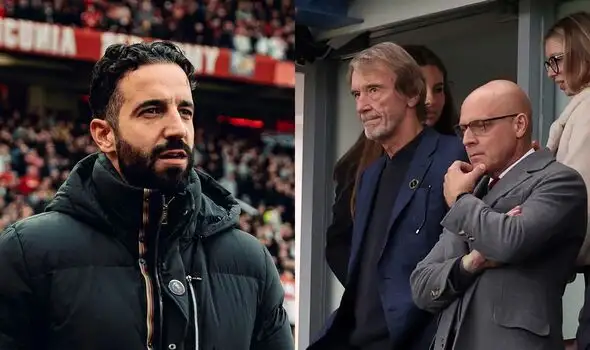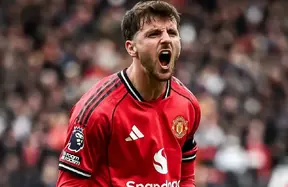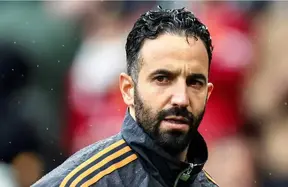Sir Jim Ratcliffe has publicly justified recent job cuts at Manchester United, arguing operating costs had grown “too high” and parts of the organisation had become “bloated” with “mediocrity.” He also referenced criticism over scrapping free lunches, quipping that “no-one’s ever given me a free lunch.” The remarks sparked immediate debate among supporters, with some backing the profitability push and others pointing to the club’s long-standing debt and mixed sporting decisions. The comments arrive amid a wider INEOS-led restructuring designed to sharpen performance, streamline processes and reprioritise spending toward football operations.

In recent on-record remarks, Sir Jim Ratcliffe addressed Manchester United’s ongoing restructuring, linking staff reductions to cost control and cultural reset. His comments, referencing perceived “mediocrity” and a “bloated” structure, prompted significant online discussion among fans about debt, resource allocation, and squad policy. The intervention follows an INEOS-driven review of operations since taking sporting control, aiming to align spending with performance goals while rebalancing the club’s cost base.
🚨🗣️ Sir Jim Ratcliffe on the job cuts: "The costs were just too high. There are some fantastic people at Manchester United, but there was also a level of mediocrity and it had become bloated. I got a lot of flak for the free lunches, but no-one's ever given me a free lunch.
@UtdXclusive
Impact Analysis
Ratcliffe’s framing of job cuts as a correction to bloated costs signals a decisive shift toward operational discipline. For a club with revenues widely reported near the £700m mark, the message is less about solvency and more about efficiency: lowering non-essential overheads, reducing duplication, and accelerating decision-making. In practice, this typically targets layers of middle management, overlapping functions, and legacy contracts—areas where elite clubs often accumulate inertia.
The cultural point is as critical as the financial one. Labeling parts of the organisation “mediocre” is a deliberate shock to the system, intended to reset standards and accountability. Short-term risks include lower morale, talent flight among valued non-playing staff, and reputational blowback if the rationale appears dismissive of contributions behind the scenes. Yet if executed with clarity—KPIs tied to football outcomes, transparent re-investment into scouting, medical, data science, and academy pathways—the long-term effect can be leaner governance, faster recruitment cycles, and better squad capex efficiency.
Financially, trimming overhead can free cash for strategic priorities: infrastructure, sports science, contract renewals aligned with performance, and data-led recruitment. The net impact on sporting results hinges on whether savings are redeployed into high-leverage areas (coaching quality, analytics, injury prevention) rather than absorbed as margin. Communication will be pivotal; without consistent explanations and visible football gains, supporters will anchor on legacy debt concerns and question whether cost-cutting impedes on-pitch competitiveness.
Reaction
Supporter sentiment is polarized. A vocal contingent argues that focusing on lunches and headcount is misdirection when the club’s historic leveraged debt remains a lightning rod. They contend that cost-cutting rings hollow without a parallel plan to reduce interest burdens and modernize football operations. Several fans point out that headline revenues are strong, questioning why lay-offs are necessary at an organization generating near-record income.
Others back Ratcliffe’s hard-nosed stance, interpreting it as long-overdue corporate discipline after years of drift. To them, rooting out inefficiencies and resetting performance expectations is the only path to rebuilding an elite culture. There’s also frustration over mixed sporting signals: while the front office trims costs, some fans cite uncertainty around contract strategy—using high-profile names as examples—to ask whether decisions reflect a coherent vision or legacy habits.
There’s skepticism toward the “no free lunch” line—some see it as tone-deaf messaging that trivializes deeper structural issues. Yet proponents counter that symbolism matters: benefits culture should mirror merit and output, not entitlement. In short, the discourse splits between those demanding debt-first reform and those prioritizing cultural reset and professional standards, with both camps seeking evidence of football-centric reinvestment.
Social reactions
Why wasn't Dan Ashworth allowed 3 years?
United Purist (@theunitedpurist)
Agree players on thousands a week can buy their own fuckin lunch .
Edward Reid (@EdwardReid71291)
I can guarantee he's been given a free lunch. He's a billionaire, their job is basically receiving free lunches
Xmus Waxon Flaxon Jaxon 🇬🇧 🇳🇬 (@chairmanMAO_92)
Prediction
Base case: Manchester United continues a targeted consolidation—streamlining non-playing departments, tightening governance, and sharpening procurement while ring-fencing football-critical budgets. Expect a clearer decision hierarchy, quicker recruitment cycles, and more rigorous performance reviews across scouting, medical, and analytics. Communications will likely pivot from slogans to metrics: wage-to-turnover, overhead ratios, injury days lost, and recruitment hit-rates.
Upside scenario: Cost efficiencies are redeployed into elite infrastructure and high-impact staff, reducing soft-tissue injuries and improving talent ID. A more agile structure boosts squad refresh cycles and resale values. Transparent KPIs and visible on-pitch improvements cool fan unrest, while commercial momentum (new partners, improved matchday) offsets restructuring noise.
Downside scenario: Messaging missteps and perceived penny-pinching sour internal morale and alienate supporters. Savings fail to translate into football gains; recruitment remains slow, and contract strategy appears inconsistent. In that case, calls to prioritize debt reduction and invest in backbone departments grow louder, forcing a revised plan and more public accountability. The decisive variable is execution quality—alignment between financial rigor and football performance will determine whether this reset becomes a foundation or a flashpoint.
Latest today
- Ruben Amorim aligns with Jason Wilcox as Man United sharpen January transfer plan
- Ruben Amorim on 3-4-3: identity first - what it means for Manchester United and player rol...
- Ancelotti vs Mourinho: Real Madrid fans split on their greatest modern legend
- David Beckham confirms he rejected Barcelona in 2003 and chose Real Madrid
Conclusion
Ratcliffe’s intervention is a line in the sand: Manchester United will not outspend inefficiency—it will dismantle it. That approach can be uncomfortable, especially when set against the backdrop of long-standing debt and the club’s stature as a commercial powerhouse. But elite sporting organizations increasingly win through precision: lean structures, data-led decisions, and relentless performance feedback loops.
The litmus test is credibility. If the club pairs cost control with visible football improvements—smarter recruitment, fewer avoidable injuries, clearer pathways for academy talent—the narrative shifts from austerity to high-performance transformation. If, however, cuts are perceived as ends in themselves, skepticism will harden and the debt debate will dominate every announcement.
In practical terms, the next six to twelve months must show tangible outcomes: streamlined processes, targeted reinvestment, and coherence between sporting and financial choices. Deliver those, and the culture reset becomes a competitive edge. Miss them, and the conversation returns to old grievances. The opportunity is real; so is the scrutiny.













United Purist
Why wasn't Dan Ashworth allowed 3 years?
Edward Reid
Agree players on thousands a week can buy their own fuckin lunch .
Xmus Waxon Flaxon Jaxon 🇬🇧 🇳🇬
I can guarantee he's been given a free lunch. He's a billionaire, their job is basically receiving free lunches
socrates georgiades
Yet the mediocrity at the helm of the football team is to be given time? What a load of shit
Mr Jey
I might be in the minority here but I think the statement "the biggest correlation between results and any external factor is profitability" is true and also it's true that the more cash you've got the better squad you can build ..the glazers were just too wasteful!
累累
Club made 700m last yr btw
Bruh Kwaku🚀
You employ Scamorim yet you want to chat about "mediocrity"
Sally Mitchell
These people aren't billionaires Jim
The last dance
I don’t like SJR but he is making sense here
TopGCharlie
Sooo why are we giving Maguire a new contract??????
Lee Ridgway
You cheeky mothefucker seriously 🐘 in the room is were in a billion debt because of the rats who's pockets you lined to stay! You come in wont even touch the debt force us to pay it & pay more & more & more so if we didnt have you cunts we'd have loads of cash
Adelio Candido
Wouldn't be mad at any of it if we sacked this manager.
Stanley
You don’t think the reason we have no cash might be somthing to do with the guys you partnered with who put us a billion in debt? Why not speak about that?
M7
Keep on ignoring your pals from America who has put us in £1bil debt u dinosaur.
Kakk
Sir Jim is here to make Manchester United profitable again 💰
Hallo Minam
We initiate coverage on $MYNZ with BUY rating and $4.50 PT (DCF-based, 8x 2027E EV/EBITDA). Early-mover advantage in non-invasive CRC diagnostics, FDA approval catalyst for ColoAlert, Large TAM with 6%+ CAGR. Upside potential >300% from current levels. Key risks: financing,
Leighton Hargrave
what do you think about this?